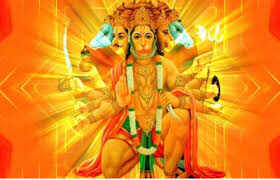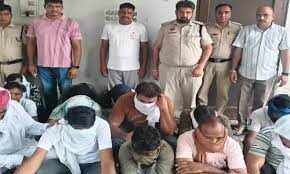Information about Manmohan Singh: On December 26, 2024, India lost one of its most learned and humble leaders, Dr. Manmohan Singh. His demise at the age of 92 is an irreparable loss not only to his family but also to the entire country. Dr. Singh’s lifetime has been an ideal example of simplicity, scholarship and selfless service.
Birth and early life (Manmohan Singh Bio in Hindi)
Dr. Manmohan Singh was born on September 26, 1932 in a small village in the Punjab province of undivided India. His family came to India at the time of partition. His early life was simple but full of ambitions. He completed his education from Punjab University and then studied Economics at Cambridge University. He did D.Phil from Oxford University. Has received the title of.
This scholarship became the basis of his public life.Dr. Manmohan Singh’s political life was full of contradictions. While on one hand he rescued India from the economic crisis, on the other hand his government was accused of corruption.
Starting out as an economist
Dr. Manmohan Singh started his career as an educationist but soon entered the world of policy making.
In 1971 he became Economic Advisor in the Ministry of Commerce and in 1972 Chief Economic Advisor in the Ministry of Finance. His analytical ability and policy decisions have led him to various top positions, including Governor of the Reserve Bank of India and Deputy Chairman of the Planning Commission.
Economic reforms of 1991 became a historical turning point
The year 1991 holds a special place in the economic history of India. At that time the country was going through an economic crisis. Under the leadership of Prime Minister Narasimha Rao, Dr. Singh implemented the policies of economic liberalization as Finance Minister. He encouraged foreign investment, abolished the license raj and took bold steps to connect India with the global economy.
These reforms took the Indian economy to new heights and made Dr. Singh the architect of the country’s economic reconstruction.
Contribution as Prime Minister (2004–2014)
In 2004, Dr. Manmohan Singh became the 13th Prime Minister of India. He was the first Prime Minister who came from a Sikh community. Under his leadership, India made remarkable progress in the economic and social fields. During his tenure:
MNREGA: Rural Employment Guarantee Scheme provided employment to lakhs of people.
Aadhar Card: Unique Identification Number system introduced.
Nuclear Deal: The India-US civil nuclear deal is one of their biggest diplomatic achievements.
Economic Development: During his tenure, India’s GDP grew rapidly and the country established itself as an economic superpower at the global level.
Beginning of political career and contribution
Dr. Manmohan Singh’s political journey began in 1991 when he became the Finance Minister under the leadership of the then Prime Minister Narasimha Rao. He played an important role in saving India during a severe economic crisis. The reformist steps taken by him made India competitive in the global economy.
In 2004, he took over as Prime Minister of the United Progressive Alliance (UPA) government. It was a challenging tenure for him, where he took many important development decisions and also faced some controversies.
Important decisions and their achievements
economic recovery of
Dr. Singh took bold decisions during the economic crisis of 1991. He abolished the License Raj, encouraged foreign investment and led the liberalization of Indian markets.
This step proved to be a revolutionary turning point in the economic history of India.
global financial crisis of 2008
In 2008, when the entire world was grappling with the global financial crisis, Dr. Singh kept the Indian economy stable. He maintained the confidence of the people by keeping the Indian banking system under control.
Increased investment in infrastructure and rural development. Schemes like MGNREGA created employment in rural areas.
MNREGA Act of 2005
Mahatma Gandhi National Rural Employment Guarantee Act (MGNREGA) helped in reducing unemployment in rural areas.
This scheme is considered one of the biggest achievements of his tenure.
2008 nuclear deal
Dr. Singh took steps towards making India self-reliant in energy security at the global level by signing a civil nuclear agreement with America.
This was one of his greatest diplomatic victories. However, this too was strongly criticized by the opposition.
Economic stability in 2013
Promoted liberalisation, globalization and privatization. In 2013, when the Indian Rupee fell drastically and there was instability in the global markets, Dr. Singh handled the situation by implementing policies in the right direction and increased FDI. He allowed foreign investment in retail and other sectors. Encouraged exports and controlled imports and stabilized the Indian currency.
Dr. Manmohan Singh: Decisions, Controversies, and His Achievements in Politics
The political life of Dr. Manmohan Singh is an important chapter in the economic and social history of India. As a learned economist and humble politician, he led the country out of economic crisis.
But he also faced many controversies during his tenure. The impact of his decisions is still visible on India’s economy and society.
Controversy and wrong decisions
The pace of policy-making remained slow during the second term of the UPA government (2009–2014). This was termed “policy inertia”, which had a negative impact on the economy. The 2G spectrum allocation scam that took place during his tenure badly affected the image of his government. The opposition accused him of being a ‘silent prime minister’. His government faced criticism for irregularities in coal block allocation. It is known as ‘Colgate’. The continuously increasing inflation between 2009-2013 had a deep impact on the general public. Pressure on the government increased due to rising prices of food items and fuel.
humility or passivity
The opposition considered Dr. Singh’s humility as his weakness.
He was taunted as a “remote control Prime Minister”, saying that he was not able to function independently under Sonia Gandhi’s presidency.
Great decisions and long term impact
Aadhaar Card-Dr. The Aadhaar card project, which started during Singh’s tenure, has played an important role in the operation of public welfare schemes in India today.
Focus on education and health-He launched several schemes to improve the education and health sectors, such as the Right to Education Act (RTE) and the National Health Mission.
Agricultural reforms-loan waiver scheme for farmers and investment in agriculture sector strengthened the rural economy.
Why was he called ‘Accidental Prime Minister’
Manmohan Singh was not a leader who actively participated in politics. He was a scholar and technocrat. Sonia Gandhi made him the Prime Minister. But his criticism was that he could not take independent decisions.
Despite this, he made his tenure successful with his simplicity and efficiency.
Awards and Honors
Manmohan Singh has received many awards in his public life. Prominent among them is India’s second highest civilian award, the Padma Vibhushan, which was awarded to him in 1987. Apart from this, he received the Jawaharlal Nehru Birth Centenary Award of the Indian Science Congress in 1995, the Asia Money Award for Finance Minister of the Year 1993 and 1994, the Euro Money Award for Finance Minister of the Year 1993, the Adam Smith Award of the University of Cambridge and St. John’s College, Cambridge. Wright Award for Distinguished Performance (1955).
Why should they be remembered?
He brought India out of the economic crisis and ushered in a new era of development. His simplicity and honesty are examples of rare qualities in politics. He worked peacefully despite criticism and took the country forward. He strengthened India’s global identity. .
Manmohan Singh’s life is a symbol of simplicity, wisdom and foresight in Indian politics. His policies and decisions proved to be milestones in the economic and social development of India.
Even though he is called the ‘Accidental Prime Minister’, his tenure and contribution can never be forgotten. His name will always be written in golden letters in Indian history.
Personal life and scholarship
Dr. Singh’s personal life was as inspiring as his public image. His wife, Gursharan Kaur, always provided a strong support in his life. His scholarship and thoughtfulness have earned him respect on national and international platforms.
Homage
The demise of Dr. Manmohan Singh is the end of an era for India. He empowered the country with his works as an economist, administrator and leader. Today, we have lost not only a leader but a great soul.
In his memory, we salute his ideals and contributions. The life of Dr. Manmohan Singh is an inspiration which tells us that great things can be done with simplicity and dedication. His contribution will always live in our hearts.










